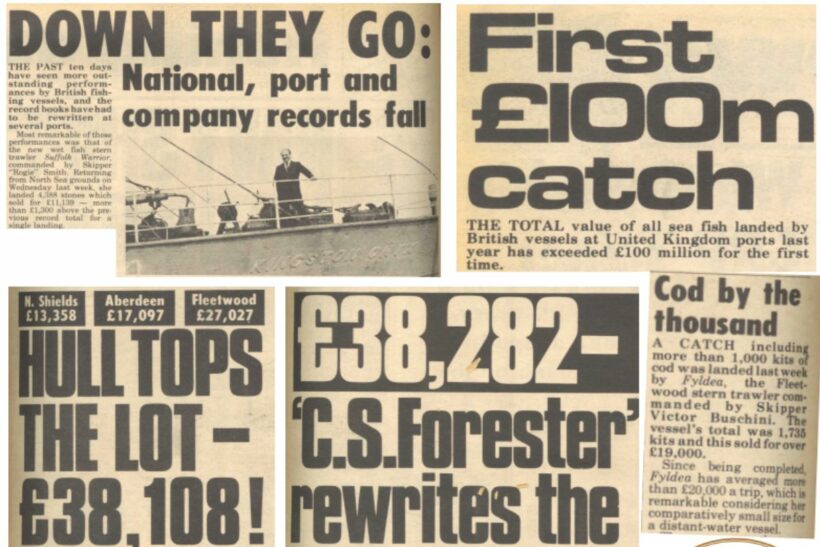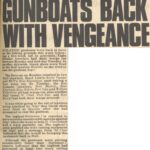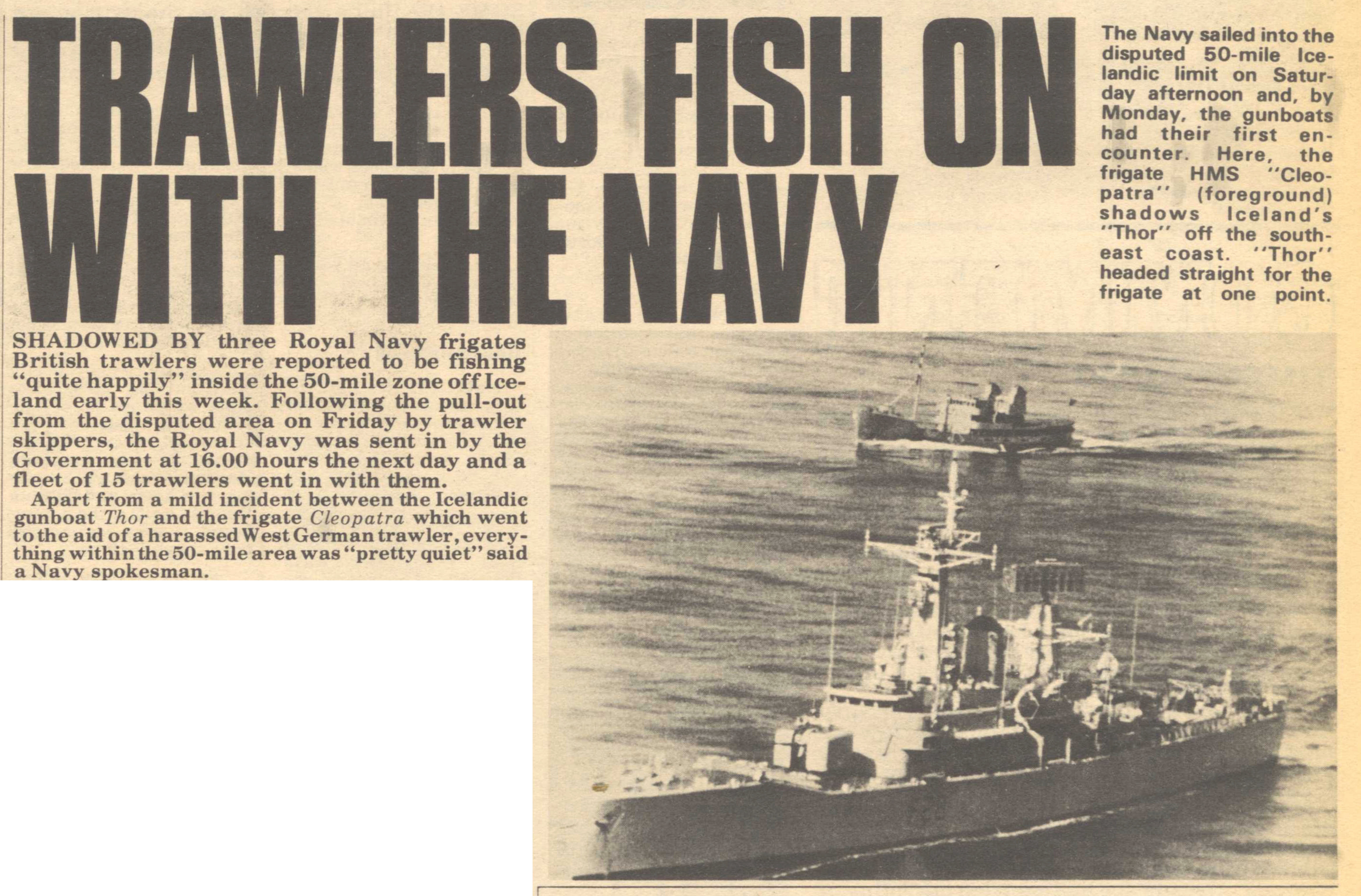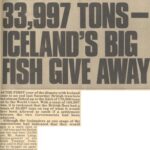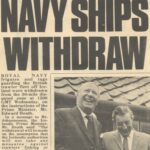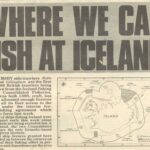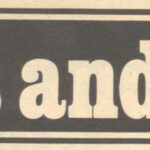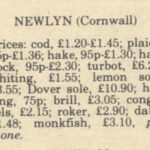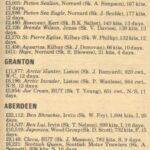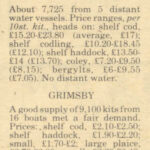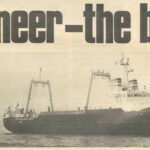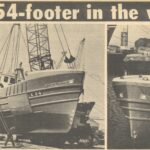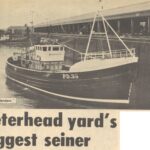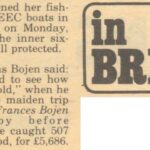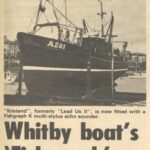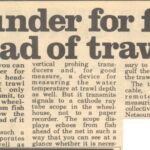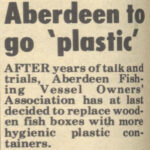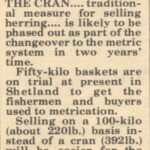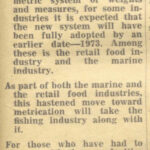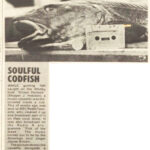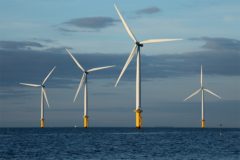1973 was a momentous year for the British fishing industry – but not in the way that, with hindsight, one might imagine…
The big story of the year was the second Cod War, which had begun in September 1972 when Iceland unilaterally extended its fishery limits to 50 nautical miles.
British deep-sea trawlermen, heavily dependent on these rich fishing grounds, vehemently opposed the move, and continued to fish within the new limits, setting the stage for a year of confrontation between British trawlers and Icelandic fisheries patrol vessels.
In May 1973, British Navy frigates were deployed to escort the British trawlers – but after a series of talks within NATO, the warships were recalled on 3 October. Trawlermen played ‘Rule Britannia’ over their radios, as they had done when the Royal Navy entered the waters – but they also played ‘The Party’s Over’. An agreement was signed on 8 November, 1973 limiting British fishing activities to certain areas inside the 50 nautical mile limit, and capping the UK annual catch at 130,000t.


The ports of note in 1973 were very different, with Hull, Fleetwood, Milford Haven, North Shields and Aberdeen appearing on page after page of Fishing News, and Shetland, Peterhead and Fraserburgh only featuring intermittently.
The ‘Catches and Prices’ pages list landings to Hull, Grimsby, North Shields, Fleetwood, Lowestoft, Milford Haven, Granton and Aberdeen, with Newlyn, Brixham, Eyemouth, Dublin, Buckie and Peterhead further down the column in the market reports. Lerwick only features in the third section, ‘Herring Report’.
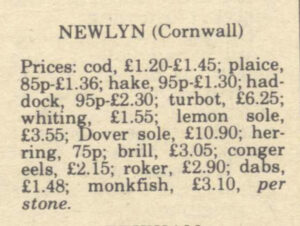
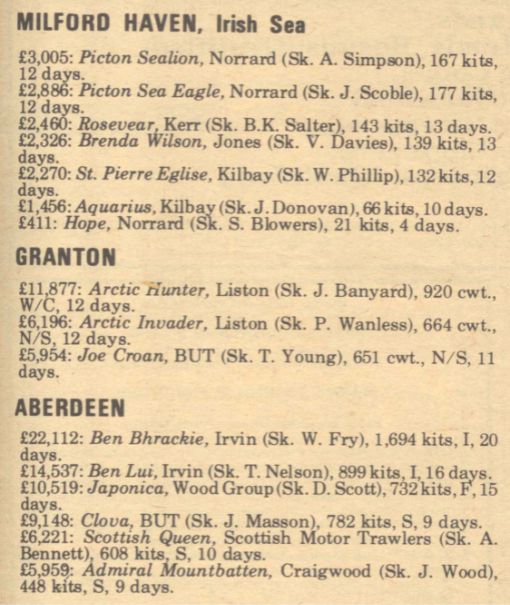
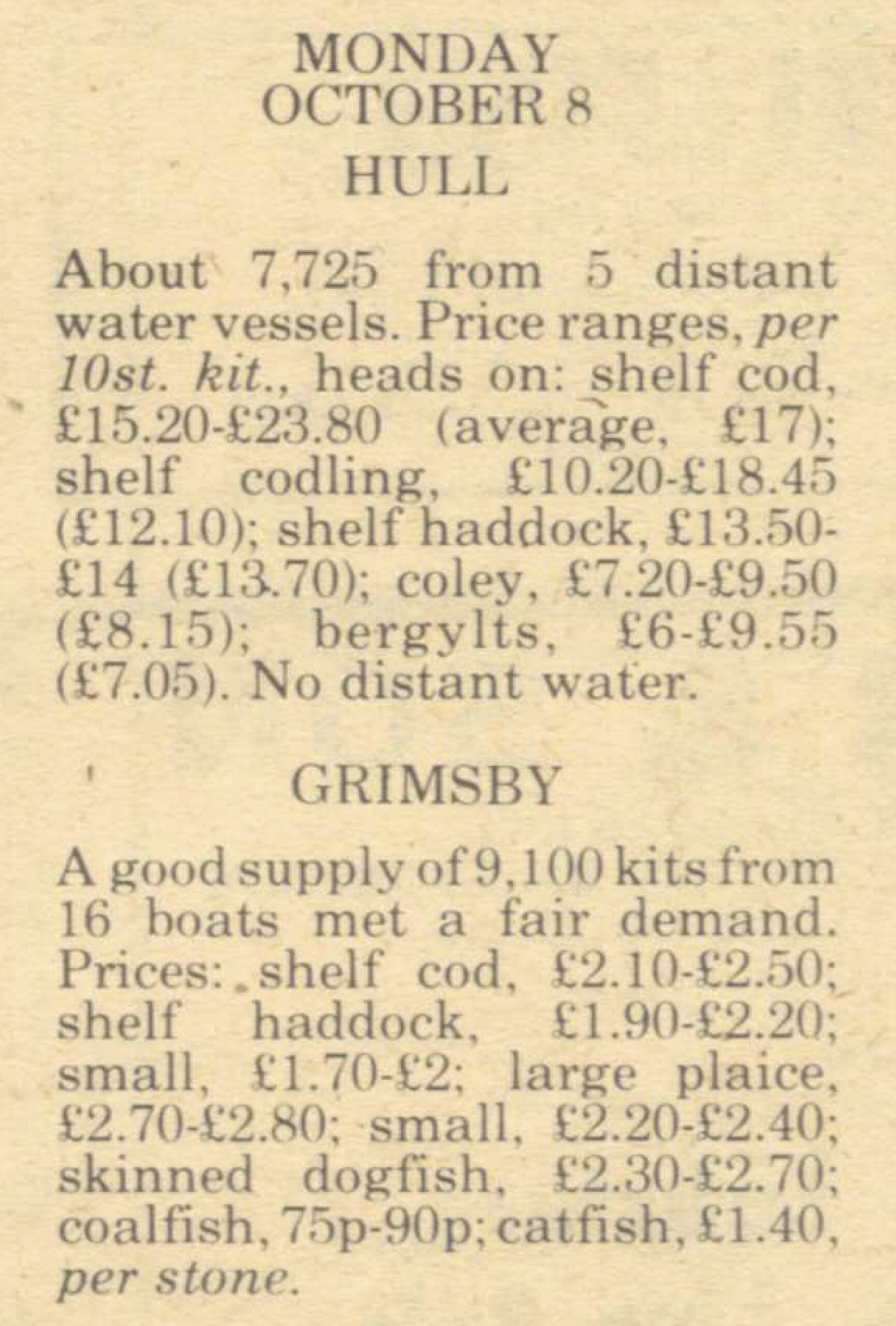
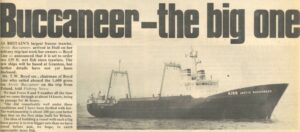
New boats joining the fleet in 1973 included the 280ft (85m) freezer trawler Buccaneer…
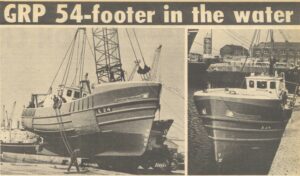
… the largest GRP boat to date, the 54ft (16.5m) George Weatherill…
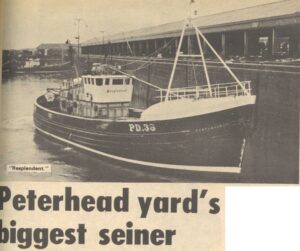
… and the 85ft (26m) wooden-hulled Resplendent, from the Richard Irvin yard.
EEC entry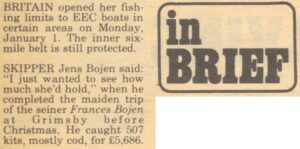
The big surprise, looking back on 1973 issues, is that the (then) EEC hardly rates a mention. Much disquiet was expressed in Fishing News in the early 1970s, as the terms of entry were hammered out. However, once inshore fishermen’s fears that Britain might retain no fishing limits at all, with EEC boats free to fish ‘right up to the beaches’, had been allayed – by the end of 1971, it had been agreed that the UK six-mile limit would be retained – there was, initially, general acceptance of the new regime.
In the issue of 5 January, 1973 – the first one after the UK officially joined the EEC on 1 January – the only mention of the event is a single paragraph at the top of the ‘In Brief’ section. As the Icelandic situation escalated through 1973, the EEC issue moved right off the agenda. Only later in the decade did the implications of having signed up to a common fisheries policy start to hit home.
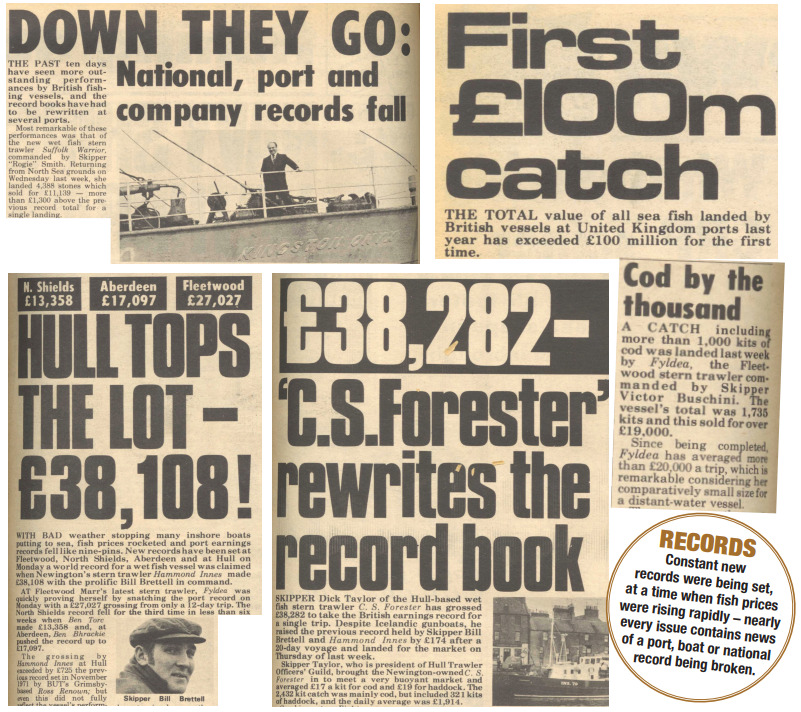
Review of the year
After the final issue of 1973 had gone to press, the year ended with a tragedy, and the comment of 4 January, 1974 sets a sombre tone. “The tragic loss of the hull trawler, Ian Fleming, with three of her crew on Christmas Day rounded off what has been a torn and trouble-marked year for the British deepsea fishing industry. Apart from the boost of soaring prices paid at the quayside, the long drawn out dispute with Iceland will make 1973 a year most trawler owners and trawlermen will want to forget.”
Looking to strike a positive note for the year ahead, it continues: “Accepting the inevitability of individual nations in the future having jurisdiction over large areas of the seas off their coasts, there is an emerging feeling spanning the whole of the British fishing industry – both deepsea and inshore – that this country should be pressing for a 200-mile limit around its own coast.” Having been forced to accept the extended Icelandic limits, there was the feeling that the UK should apply the principle at home.
It adds: “This is a call which will find sympathy in every section of the British fishing industry. The inshore industry, which feels it got the thin end of the wedge when this country acceded to the EEC common fisheries policy, will be anxious to bring about a rethink in Brussels. The EEC should be told that it cannot insulate itself entirely from international thinking and that by comparison, its ‘fish up to the beaches’ doctrine is ridiculous and out of date.” The battle lines were being drawn for the years ahead.

This story was taken from the archives of Fishing News. For more up-to-date and in-depth reports on the UK and Irish commercial fishing sector, subscribe to Fishing News here or buy the latest single issue for just £3.30 here.



